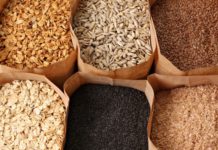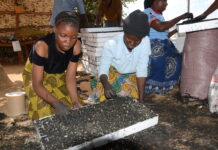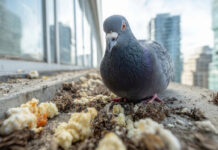Extrupet Pty Ltd has been operational for over 20 years, primarily focused on the recycling of post-consumer PET bottles. It currently runs on two sites in Johannesburg, two in Cape Town and one in Mauritius (since 2004). An initiative born on the back of government pressure back in 1999 when brand owners and producers were tasked with ensuring the collection and recycling of their PET bottles (failing which government were proposing a packing levy on each bottle), it today is the largest recycler of plastics on the continent.
Forward wind 20 years and EPR (Extended Producer Responsibility) for paper and packaging (amongst other items) is now mandatory as per laws enacted by Government in November 2021. Never has there been a time that awareness of environmental decay features daily as it currently does, and the role of packaging in that space. The popularity of PET bottles, which have a far lower carbon footprint then their glass counterparts, has seen a remarkable transition to this packaging medium. This has generated a growing challenge for brand owners and producers to ensure sufficient volumes are collected and recycled to ultimately divert waste away from our landfills and oceans.
South Africa as a country now recycles approximately 90,000 tons per annum of PET bottles, but sadly a greater amount goes unrecycled. In the push to close this gap one of the biggest challenges PET recyclers face is that of “design”. The recent push by the dairy industry transitioning into OPAQUE PET bottles is one such example. While an OPAQUE PET bottle is technically recyclable, in reality less than 1% are ever actually recycled. So problematic are these bottles, that they cannot even be downcycled into products like polyester fibre, which traditionally are the end use markets for coloured PET bottles.
While it is easy to validate some of the reasons behind the transition to OPAQUE PET bottles, the harsh reality remains that in Africa these bottles are destined for the landfill and oceans. Not only is this environmentally damaging but also goes against the global push to ensure that all PET bottles are circular. Furthermore, the industry is doomed to fail on the targets set by Government in the Section 18 notices for mandatory EPR on paper and packaging.
Petco CEO Cheri Scholtz, highlights that despite PET being lightweight and cost-effective, brand owners must understand the role of packaging design in realising the value of post-consumer waste as an economic resource in building a sustainable recycling economy, as well as the role of recycled content in minimising raw material consumption in packaging manufacturing.
While Scholtz agrees that packaging that is not designed for recycling contributes to environmental degradation and hinders the achievement of EPR targets, Scholtz adds that consumers’ rising demand for environmental performance in product design and development will make it increasingly difficult for companies failing to address these demands to compete in local and global markets.
Scholtz encourages brand owners to approach product design as a part of sustainability and not as an add-on, but as a value-add and service integral to their product. This is critical especially considering the future implementation of eco-modulation, an economic tool that will be used to drive change to more sustainable circular packaging in the medium to long term. Eco-modulation will allow PROs to charge different rates for different materials based on ease of recycling. Essentially penalising the use of less environmentally friendly packaging and the use of better packaging.
In conclusion OPAQUE PET bottles (for whatever application) are not sustainable. As is the global drive brand owners in the dairy industry are encouraged to look at redesigning problematic packs to ensure they deliver on their sustainability and EPR claims. Their customers will expect no less and government legislation will demand it. In this regard Extrupet always make themselves available to engage in a process to assist in the design of a truly recyclable and sustainable PET bottle. We would invite any and all in the dairy industry to engage with us accordingly.








